Hangxiety is that gnawing sense of anxiety that kicks in after drinking—usually the morning after a night out or even just a few drinks at home.
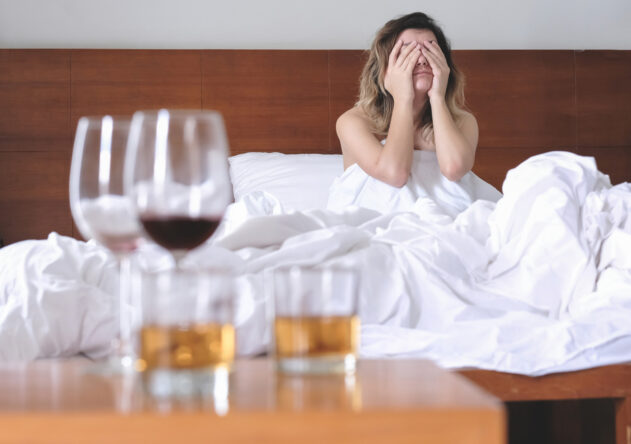
It’s not just a hangover, though—if only. Instead, it’s that awful mix of dread, self-doubt, overthinking, and low mood that seems to crash into you right alongside the dehydration and headache. The worst part is that it can show up even when nothing went “wrong” the night before. Here’s what the experience is really like.
1. Hangxiety feels like emotional whiplash the next day.
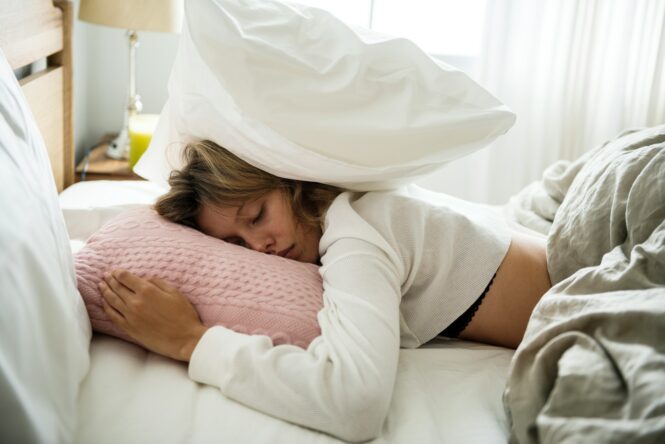
You might’ve been bubbly, social, and carefree the night before, but now? You wake up with a pit in your stomach and a brain full of “What did I say?” and “Did I make things weird?” Even if you didn’t actually do anything embarrassing, your body feels like it’s reacting to something shameful.
This disconnect between how you felt while drinking and how you feel after is exactly what makes hangxiety so rough. It’s like your brain is punishing you for letting your guard down, even if nothing actually went wrong.
2. It’s not just a mental thing—it’s physical too.

Alcohol messes with your nervous system. It affects your blood sugar, dehydrates you, disrupts your sleep, and throws off your brain chemistry. That shaky, restless, can’t-sit-still feeling? That’s part of it. So is the racing heart or sudden wave of nausea that doesn’t match the actual hangover symptoms.
So when you feel anxious the next day, it’s not just in your head. Your body’s going through withdrawal from the chemical effects of drinking. That jittery feeling is real, and your mind just joins in on the chaos.
3. Your brain is trying to rebalance itself,
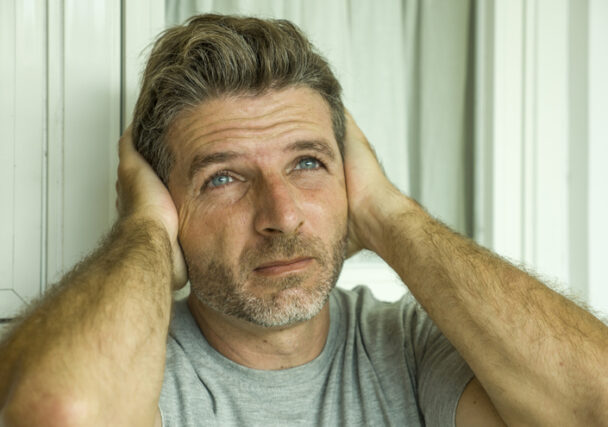
When you drink, your brain releases feel-good chemicals like dopamine and GABA. Of course, once the alcohol wears off, your brain often swings too far the other way, pulling back on those calming chemicals and ramping up things like glutamate, which amps up anxiety and overstimulation.
That’s why you might wake up with a sense of doom or feel panicky over nothing. Your brain is trying to regulate itself after being artificially numbed, and it usually overshoots on the rebound.
4. Sleep deprivation makes everything worse.
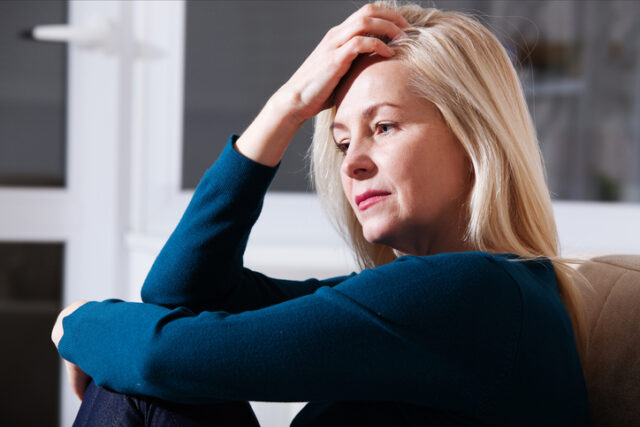
Even if you got a full eight hours, alcohol disrupts the quality of your sleep. It blocks REM, the part that helps with emotional processing. That’s why you wake up feeling foggy and fragile instead of rested. Your body was technically asleep, but your brain didn’t get the memo.
Without deep sleep, your mind is more reactive, your mood is more sensitive, and everything feels a bit more dramatic. Hangxiety loves to fill in the gaps that lack of sleep leaves wide open.
5. It’s worse if you already have social anxiety.
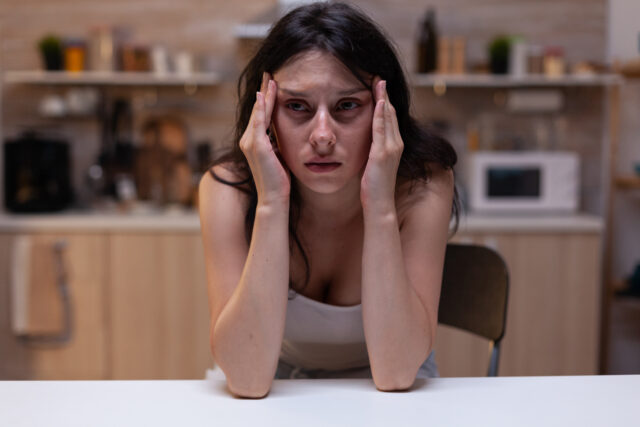
If you’re someone who already overthinks social situations, drinking can be a double-edged sword. It might help you loosen up in the moment, but the next day, your brain hits rewind and goes into over-analysis mode. You start obsessing over how loud you were, whether you interrupted anyone, or if you said something off. It doesn’t matter if people reassured you—you still feel exposed. Hangxiety amplifies that self-doubt like it’s on a loudspeaker.
6. Even small amounts of alcohol can trigger it.

It’s not just about getting drunk. Some people experience hangxiety after just a couple of drinks, especially if they’re already prone to anxiety, had a stressful day before drinking, or didn’t eat enough beforehand. It’s not about how much you drank—it’s about how your body and brain respond. So if you’re feeling rough after two glasses of wine, you’re not being dramatic. Your nervous system might just be more sensitive than someone else’s.
7. Overthinking is the loudest symptom.
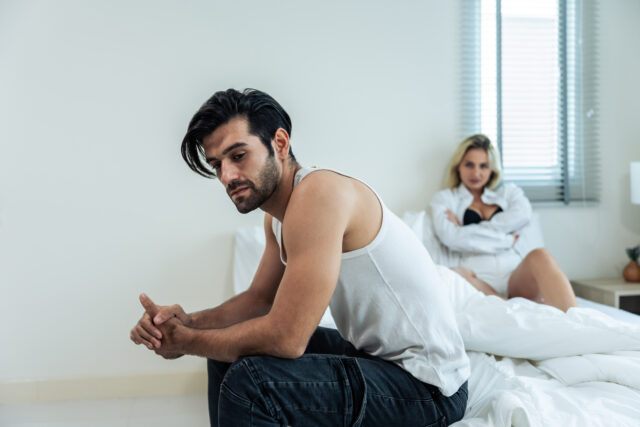
One of the clearest signs of hangxiety is the mental spiral: replaying conversations, worrying about what people think, second-guessing yourself, and feeling deeply embarrassed by things you can’t even remember clearly. It’s not just annoyance, it’s shame. Hangxiety feeds off your inner critic and makes everything feel more serious than it probably was. It tells you stories that feel true, even when they’re just amplified fears.
8. It often comes with random waves of dread.
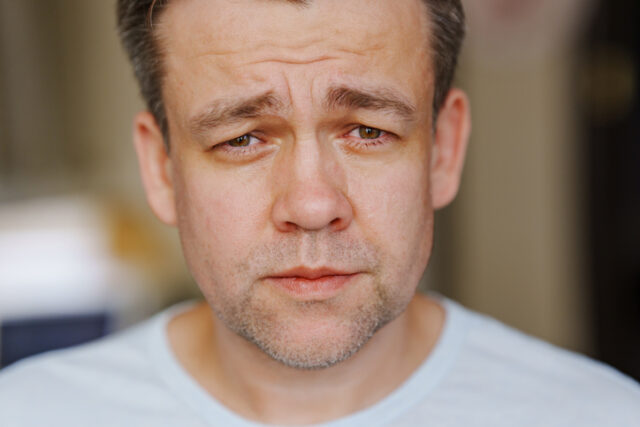
Even if your night was chill and uneventful, you might still wake up feeling like something terrible is about to happen. That “impending doom” feeling isn’t about logic—it’s your nervous system trying to make sense of all the dysregulation. This kind of dread doesn’t always come with clear thoughts. It’s more of a vibe, like your brain and body are bracing for impact, even though there’s no real threat in sight.
9. You don’t have to “do” anything wrong to feel it.
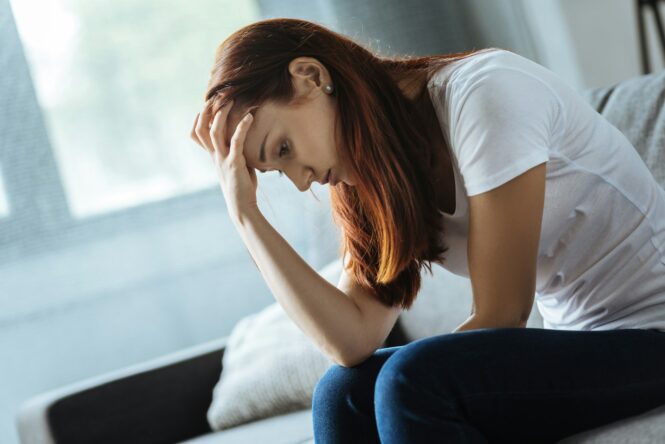
One of the hardest parts of hangxiety is how out of proportion it feels. You can have a completely uneventful night, but still wake up the next day feeling anxious, guilty, or on edge. That makes it confusing and harder to explain to other people, or even yourself. However, here’s the thing: you don’t need to have “messed up” for your body and mind to feel off. Hangxiety is less about what happened and more about how your system reacts afterward.
10. Trying to remember the night in detail can make it worse.
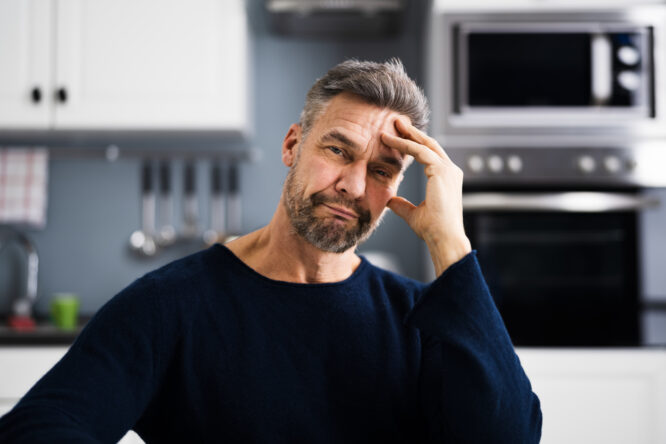
When the anxiety kicks in, your brain might go into detective mode: trying to piece together every moment of the night to find what caused the bad feeling. However, this usually makes things worse. Your memory isn’t reliable after drinking—and filling in blanks with worst-case scenarios only fuels the spiral.
Instead of obsessing over what you might’ve done, focus on grounding yourself in the present. You’re safe. You’re not in trouble. The story your brain is spinning might just be a story, and you don’t have to believe all of it.
11. Some people use drinking to calm anxiety, which makes the hangxiety worse.
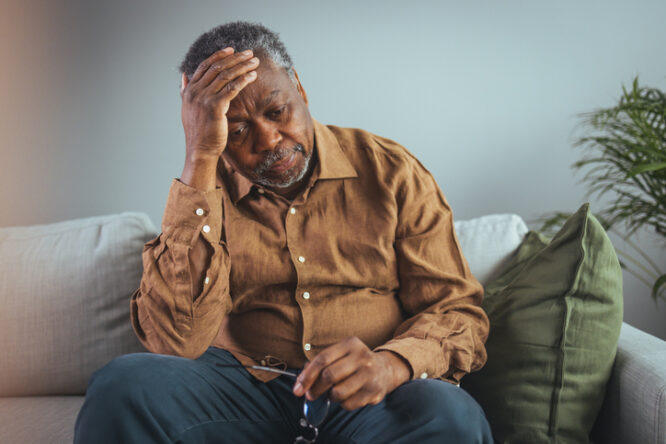
If you drink to take the edge off social situations or silence your thoughts, the crash is often sharper. Because once the calming effect wears off, the anxiety comes back louder. It’s like stretching a rubber band—it snaps back harder the more you pull it.
It’s not about blaming yourself, but it is worth noticing if your relationship with alcohol is giving you short-term relief at the cost of longer-term emotional spirals. There are other ways to feel calm that don’t come with this kind of aftermath.
12. Being kind to yourself is the fastest way out.

The instinct is usually to beat yourself up or “fix” whatever you think went wrong. However, the real antidote is gentleness. Hydrate, eat something grounding, take a walk, and if possible, talk to someone who makes you feel safe. You don’t need to explain—just be around calm energy. Hangxiety feeds on shame. So the more you treat yourself like you’re in trouble, the worse it gets. What you need most is softness, not self-interrogation.
13. You’re not broken for feeling this way.

This part’s important. If you experience hangxiety, you’re not weak, dramatic, or overly sensitive. You’re a human being with a nervous system that reacts a little louder than some. That’s not a flaw. It’s just how you’re wired right now. Noticing it is the first step. Understanding it is the second. And giving yourself grace while it passes? That’s how you start to make peace with it, or better yet, learn how to prevent it altogether.




